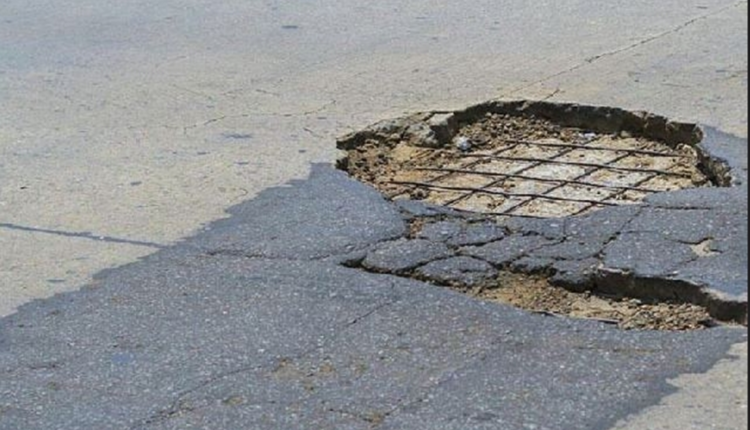In the midst of my daily battle on the Tema Motorway, my roadworthy vehicle became a faithful companion in the struggle against a relentless adversary — an unworthy road. One particular day stands out vividly in my memory, as my car valiantly navigated through a maze of potholes that seemed to have a personal vendetta against smooth rides.
As I maneuvered my way through the treacherous path, each pothole became a challenge, and my vehicle responded with creaks and groans, as if protesting the injustice, it faced. The shocks, designed to absorb minor bumps, were now subjected to a battlefield of craters, each jolt echoing the desperate plea for a road deserving of its capability.
It was a surreal experience — a roadworthy vehicle at odds with its surroundings, a David against the Goliath of neglect and disrepair. The Tema Motorway, originally designed to facilitate seamless travel, had transformed into a battleground where cars valiantly fought for its integrity, and that of others, as drivers, fought for the safety of passengers and themselves.
This personal encounter with the unworthy road served as a poignant reminder that the issues plaguing our infrastructure are not abstract but deeply personal. The wear and tear on vehicles mirrored the toll on the countless others traversing this hazardous route daily. It was a visceral experience that fueled my determination to shed light on the urgency of addressing the deplorable state of our roads.
As I reflect on that challenging journey, it becomes clear that my roadworthy vehicle on an unworthy road is not just a singular experience; it is a collective narrative of countless drivers grappling with the same predicament. It’s a shared struggle against a common adversary – a road that should be a conduit of connection and progress but has instead become a source of peril and frustration.
Driving is a daily necessity for many, a routine that becomes second nature as we navigate our way through the intricate web of roads and highways. However, for those of us compelled to traverse the Tema Motorway daily, the experience is far from routine. It’s a perilous journey, a battle against a road that seems to be at odds with the very concept of safety and roadworthiness.
Picture this: ”a roadworthy vehicle, designed for smooth and secure travel, grappling with a stretch of asphalt that can only be described as unworthy. Potholes, not mere indentations, but craters with dimensions rivaling those of a kitchen pot, lurk menacingly at every turn. My shocks groan in protest, and my tires, despite their durability, are no match for the relentless assault. The Tema Motorway, intended to facilitate convenient travel, has become a treacherous path that jeopardizes both lives and properties.
Regrettably, the consequences of this unworthy road extend beyond vehicle repairs. The alarming number of lives lost on the Tema Motorway is a testament to the dire state of our infrastructure. Every bump, jolt, and swerve poses a potential threat, and the toll on human life is a price too high to pay for neglecting our roads. It’s time to acknowledge that the very infrastructure meant to connect us is tearing us apart.
In the face of such danger, one must question the role of the government and the authorities entrusted with the responsibility of maintaining our roads. Ensuring the safety of citizens should be paramount, and yet, the deplorable condition of the Tema Motorway suggests a failure in fulfilling this duty. It’s not merely a matter of inconvenience; it’s a matter of life and death.
Beyond the immediate safety concerns, the ripple effects of the neglected road extend into our economy. As cars transporting essential goods navigate these hazardous conditions, the cost of repairs inevitably translates into increased prices for the very products we depend on. The road’s impact on the transportation of foodstuffs, in particular, threatens to create a domino effect, burdening consumers and potentially causing food insecurity.
As we stand on the brink of a new year, it is imperative that we usher in a safer era of transportation. The call to action is not merely a plea for smoother rides; it is a demand for a fundamental right—the right to travel without fear for our lives and the lives of our loved ones. We implore the government and stakeholders concerned to prioritize the repair and maintenance of the Tema Motorway and similar roads across the nation.
In sharing my story, I hope to amplify the voices of all those who navigate unworthy roads daily, emphasizing that our collective plea for safer infrastructure is not just a desire for comfort but a demand for the preservation of life and well-being. It’s time for the authorities to act, turning our unworthy roads into safe passages and ensuring that every journey is a step towards progress, not peril.
Written BY: Mabel Delassie Awuku
The writer is a staff of the Information Services Department (ISD)


Comments are closed.